
One morning last summer, I woke up and announced, to no one in particular: “I choose to be happy today!” Next I journaled about the things I was grateful for and tried to think more positively about my enemies and myself. When someone later criticized me on Twitter, I suppressed my rage and tried to sympathize with my hater. Then, to loosen up and expand my social skills, I headed to an improv class.
I was midway through an experiment—sample size: 1—to see whether I could change my personality. Because these activities were supposed to make me happier, I approached them with the desperate hope of a supplicant kneeling at a shrine.
Psychologists say that personality is made up of five traits: extroversion, or how sociable you are; conscientiousness, or how self-disciplined and organized you are; agreeableness, or how warm and empathetic you are; openness, or how receptive you are to new ideas and activities; and neuroticism, or how depressed or anxious you are. People tend to be happier and healthier when they score higher on the first four traits and lower on neuroticism. I’m pretty open and conscientious, but I’m low on extroversion, middling on agreeableness, and off the charts on neuroticism.
Researching the science of personality, I learned that it was possible to deliberately mold these five traits, to an extent, by adopting certain behaviors. I began wondering whether the tactics of personality change could work on me.
This story is from the March 2022 edition of The Atlantic.
Start your 7-day Magzter GOLD free trial to access thousands of curated premium stories, and 9,000+ magazines and newspapers.
Already a subscriber ? Sign In
This story is from the March 2022 edition of The Atlantic.
Start your 7-day Magzter GOLD free trial to access thousands of curated premium stories, and 9,000+ magazines and newspapers.
Already a subscriber? Sign In

The Dark Origins of Impressionism
How the violence and deprivation of war inspired light-filled masterpieces

The Magic Mountain Saved My Life
When I was young and adrift, Thomas Manns novel gave me a sense of purpose. Today, its vision is startlingly relevant.
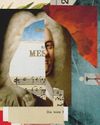
The Weirdest Hit in History
How Handel's Messiah became Western music's first classic
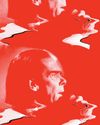
Culture Critics
Nick Cave Wants to Be Good \"I was just a nasty little guy.\"
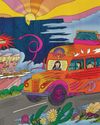
ONE FOR THE ROAD
What I ate growing up with the Grateful Dead

Teaching Lucy
She was a superstar of American education. Then she was blamed for the country's literacy crisis. Can Lucy Calkins reclaim her good name?
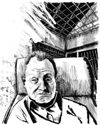
A BOXER ON DEATH ROW
Iwao Hakamada spent an unprecedented five decades awaiting execution. Each day he woke up unsure whether it would be his last.

HOW THE IVY LEAGUE BROKE AMERICA
THE MERITOCRACY ISN'T WORKING. WE NEED SOMETHING NEW.
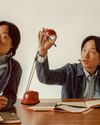
Against Type
How Jimmy O Yang became a main character

DISPATCHES
HOW TO BUILD A PALESTINIAN STATE There's still a way.